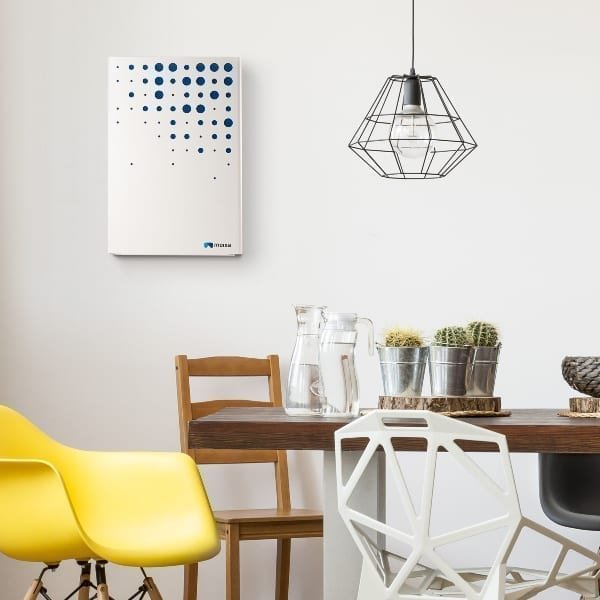This article appears in the summer issue of MyGreenPod.com Magazine, distributed with the Guardian on 14 July 2017. Click here to read the full digital issue online.
Soon every home will run on batteries. If that sounds like the stuff of science fiction, then you’re missing out on an energy system that slashes bills, reduces carbon emissions and improves energy security using award-winning smart technology.
Battery-powered homes already exist so this isn’t a blueprint for the future – though Simon Daniel, founder of energy storage business Moixa, has always been ahead of the curve. In 2003 and 2004 he and co-founder Chris Wright visited Silicon Valley to sell patent licenses for three inventions. ‘We met Apple, Microsoft and Logitech, but realised our products – which included a rollable tablet, a modular smartwatch and a flexible mouse – were way ahead of their time’, Simon remembers. It took another five years for Apple to launch a solid tablet and 10 years for its smartwatch to come to market; Microsoft didn’t release its Arc Mouse, which flattens to fit neatly into your pocket, until 2010.
Though at the time the world wasn’t ready for these products, Simon made an important observation while prototyping and 3D printing the flexible tablets and smartwatches. He realised that embedded batteries would be an ongoing problem for all future mobile and ‘internet of things’ devices that need power. In 2006 he decided to concentrate on smart energy and batteries, and within six months he’d invented, developed and launched a new AA battery that charged via a USB port. The USBCELL, which has won a top iF Gold design award, has topped a million sales and helped to fund research into home batteries.
WHAT IS A HOME BATTERY?
The Moixa Smart Battery is a small (50x30x20cm) unit that sits under the stairs or in the garage; in the hands of an experienced, accredited installer it can be fi tted in less than two hours. It’s charged either directly from solar panels during the day or using cheap electricity via Economy 7 at night. ‘Customers will not notice anything different’, Simon tells us, ‘other than the size of their electricity bill.’
A full solar and battery package, which includes a combined 2kWh Smart Battery and 2kWh PV system, will cost around £5,000 – though the price will be significantly lower if, like around half of Moixa’s customers, you already have solar panels on your home.
The payback time will depend on the house and the size of its roof, but as an example a customer with a large roof who uses electricity throughout the day can draw around 65% of their energy from solar and battery, representing a saving of around £350 on a typical bill. ‘Some of our customers are saving 70% on their electricity bills’, Simon tells us. ‘They will also earn 20 years of Feed-in-Tariff payments, and Moixa will pay a minimum of £50 per year if they make their battery available for Gridshare.’ This grid-sharing service enables all Moixa’s batteries to be managed as a Virtual Power Plant (VPP), and customers with excess power stored in their batteries will get a share of the profit Moixa makes by selling it to the National Grid.
Moixa already has 1,000 UK customers, but the aim is to install smart batteries connected to solar panels into a million UK households, then aggregate them with other batteries to create a collective grid service to help lower customer bills and overall system costs.
 Play Video about This Rock Might Just Save The World
Play Video about This Rock Might Just Save The World Play Video about Play 2 hours of rock
Play Video about Play 2 hours of rock Play Video about Play 2 hours of brook
Play Video about Play 2 hours of brook Play Video about Play 2 hours of sheep
Play Video about Play 2 hours of sheep











































